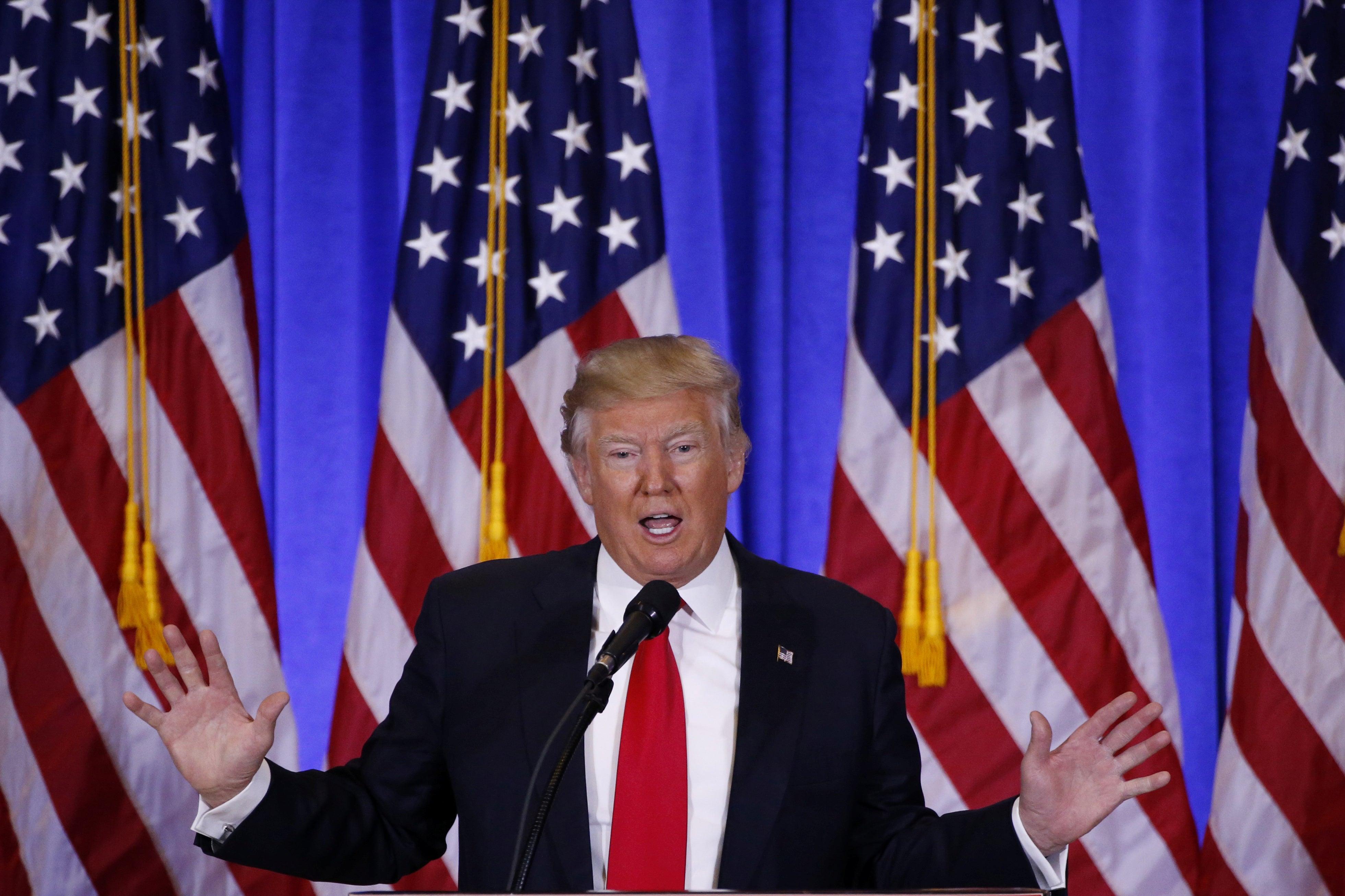
The ethics of Buzzfeed publishing the Trump ‘dirty dossier’ may be in question – but media lawyers appear agreed that he is unlikely to sue either in the US or the UK.
The most sordid elements of the research dossier on Trump have been widely repeated by various UK newspapers- along with his vehement denials.
Mark Stephens, of the law firm Howard Kennedy, said: “Buzzfeed’s done nothing wrong. Both here and in America there is something called neutral reportage. If somebody is saying something and it is in the public interest you can report the fact that this happening provided that you don’t adopt the allegations yourself.
“In America, when you have a public figure you can say pretty much anything provided you don’t have evidence that it is untrue. Somebody who is president of the United States has the smallest zone of privacy around their reputation.”
Stephens said he believes that both Buzzfeed, and UK publications who have repeated the allegations, are “absolutely in the clear”.
Co-author of MacNae’s Essential Law for Journalists – Mike Dodd – said UK journalists are safer from a possible Trump libel suit than they would have been before the 2013 Defamation Act became law.
He said: “You have the defence of publication on a matter of public interest, which is a new defence in the Defamation Act 2013. You’ve also got the bane and antidote defence, if you include the allegation but also include some vigorous denials you might have a defence on that basis as well.
“There is also the reportage defence provided you are reporting both sides and not adopting the allegations as being true.
“Trump would have a much harder time suing in the US because he would have to prove the material was untrue and that it was published maliciously. Because he is a major public figure he would find it almost impossible to bring a libel case against any American publishers in the US.
“Personally, I would be careful about how much you went into all the details.”
Godwin Busuttil, a barrister with 5RB, Godwin said the most serious allegations in the dossier are “highly defamatory of Trump, no question”.
He added: “In principle there is not going to be any difficulty getting a case off the ground under Section 1 of the Defamation Act.”
But he agreed that newspapers could make use of the defences of neutral reportage and public interest.
He added: “Normally the advice with someone like Trump is that they are unlikely to sue, but Trump is known to be highly litigious.
“Newspapers will probably have taken a pragmatic view that, although the allegations in the dossier are highly defamatory of him, he has bigger fish to fry at the moment and he is unlikely to sue. They may have taken a different view six months ago when he was merely candidate Trump rather than the President-elect.”
Jennifer Agate, from Foot Anstey, said: “Had the dossier concerned an English politician, even a high profile one, a UK publisher would never have risked breaking a story like this without first verifying all the facts.
“While public figures are expected to be subject to criticism, both the sexual and political allegations are unquestionably defamatory and severe enough to pass the serious harm test. Now that Buzzfeed has broken the story, UK papers can safely report the events, but only so far as they make it clear that we are talking about unsubstantiated allegations and nothing more.”
Email pged@pressgazette.co.uk to point out mistakes, provide story tips or send in a letter for publication on our "Letters Page" blog
